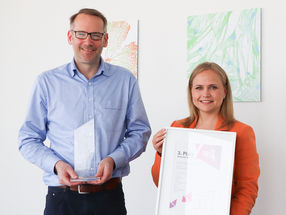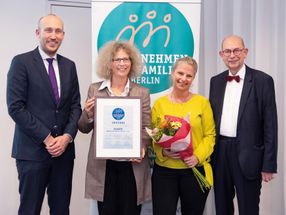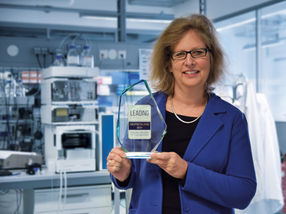Clinical Research a booming career - Are you ready for it?
From Dr. Dipti Sawant, PhD, Senior CRA, Chiltern International Private Limited, Mumbai 400 059, India
Advertisement
Clinical Research is about rules and regulations and when one is aware of these rules and regulations then this facilitates working in this field. Not only pharmacy graduates and graduates in biological sciences but also medical doctors interested in research are pursuing careers as Clinical Research Associate (CRA). The recruitment of CRAs in Pharma companies and contract research Organizations has intensified in recent years as these companies and organizations have expanded their capabilities, global reach and expertise.
Being a CRA
A Clinical Research Associate (CRA) is the main link of communication between the Study Site and the Sponsor. The CRA is an important entity to the project team and the clinical trial essentially revolves around the CRA.
The moment a CRA is recruited by a Pharma company/Contract Research Organisation, they will oriented towards clinical research. It is vital that they are thoroughly trained in-house on the regulations and rules laid down by ICH-GCP, Standard Operating Procedures of the company / organization and are then introduced for on - site training as part of the company's / organization's training course.
But is this training enough to handle the Principal Investigator, study team, site, and the most important - conduct of the clinical trial at that site? And will it help them to develop themselves as a good CRA in this competitive field?
A CRA should understand that there are certain other qualities, which in a sense may be considered secondary most of the times, but are actually essential if a CRA is to progress in this field. One should remember that building relationships with the key study staff is essential to the success of any clinical trial. And for building such relationships one requires a good rapport with people.
Site related issues could be perceived as minor at the beginning of the study but can magnify in importance during the course of the study. CRAs should know how to analyze any study-related risks and challenges, and the analysis should be started once they begin interacting with the Investigators. The elements of the study-related risks and challenges could be the interpersonal issues with the Investigator/site team, study finances, lack in documentation, lack of expertise in logistic handling, deficiencies in training and sometimes a lack of GCP compliance. As a CRA, when you select an investigator you are building a relationship which, in some cases, may last many years. For a successful outcome you need to achieve harmony of objectives and approaches through an (ideally) enjoyable professional relationship. So the first step for CRAs in selecting the perfect investigator is to have as much input into the selection process as possible. In this way the CRA can select personalities whom he/she feels would be enthusiastic and committed to the particular study.
Qualities required for being a good CRA
A CRA must be self-confident, flexible and adaptable to the changing environment. He/she should be able to operate through relationships that are built on trust, respect, loyalty and an ability to relate to people. One would obviously avoid becoming over-friendly such that the behaviour compromised the standards of a particular study. As in any working relationship, it is important to eliminate bias in critical situations that might have an impact on the progress of the study, particularly as the CRA could be held responsible if problems occur. The CRA should therefore be able to maintain an air of friendly professionalism in all aspects of their work.
Good Communicator
Some CRAs have all the theoretical knowledge of conducting monitoring and are also well-versed in GCP guidelines but are less adept when it comes to communicating with the team.
One should have good interpersonal skills and should be able to build a rapport with the study team members at the site. Many CRAs must have experienced situations where there have been communication problems with sites. At times convincing the site team is far from an easy task. One should have the ability to convince the Investigator that "I am right as per the regulations". This again depends upon the nature of the relationship or rather how effective communication is with the Investigator.
Investigators will not trust CRAs who appear to be more interested in themselves rather than in trying to be of service to either the investigator or the study staff. Certain behavioural characteristics can be perceived in this manner: a tendency to give answers too quickly; not paying heed to what Investigator wants to say, not offering solutions to problems, a need to appear to be clever and witty. Earning trust is an activity that can be managed and improved, but without mechanizing the investigator/CRA relationship. Although people place great weight on being a good speaker, they should not neglect the ability of being a good listener when they are working with sites.
An important part of the communication process is written communication skills. Simply writing exhaustive follow-up letters and reports is not an effective way of communicating. The follow-up letters and the reports should be focused and should capture all the points discussed with the site team, your findings, and a corrective action plan for the site. Of course the relevant Standard Operating Procedures should be followed to report the findings but this should be detailed in a concise manner. One should understand that the Investigator at the site is a clinician first and he must give preference to his patients. In a sense, the conduct of the clinical study is secondary. The monitor should understand how, in the limited time span, maximum output from the study team could be obtained. The monitor should respect the Investigator's time and commitments. In return the CRAs will be better appreciated by the Investigator for their clinical study.
Observing
The monitor should be an excellent observer as the job of a CRA not involves monitoring the source files, making notes from the patients files, reviewing case report forms, verifying informed consent forms and identifying the typographical, documentation errors, but, observing any mistakes and identifying any patterns in a logical manner. Logical source data verification helps identify adverse events, missing concomitant medications, errors in IP accountability. By being proactive very serious problems can be avoided. A CRA can design a reference tool such as a source data verification sheet, as per the study protocol, which can be used during monitoring. The source data verification (SDV) sheet serves as a prompt to the CRA and also helps the CRAs to capture potential mistakes.
Pro-Active
CRAs must be pro-active. He/she should keep himself/herself updated about the overall progress of the study in relation to equivalent work proceeding at the other study sites. This helps in keeping the Investigator at his/her site adequately informed about the overall study. The CRA should update the study team in the office once he/she returns from any site visit. The site related issues should be discussed with the study team in-house and resolved and then relayed to the site. Promptness helps in resolving the problems at an early stage. At the site, the CRA should feel free to ask the Investigator any questions related to the study. If the CRA has a genuine interest in the study and has established a good relationship then the Investigator will willingly answer such questions. This way the interest level of the Investigator in the study will also be encouraged. CRAs should understand that the Investigator's interest is the only driving force for the study team to perform their jobs at the site.
Diligence
CRAs should be alert and pro-active when it comes to their job. He/she should be meticulous enough to sense potential misconduct or fraud committed by the site team. The CRA should take timely action in such cases and should seek to resolve problems very quickly, in consultation with the project team back in the office. A CRA should focus on the investigator rather than themselves. They should have enough self-confidence to listen without pre-judging; enough curiosity to inquire without pre-empting an answer; and a willingness to see the investigator as a colleague in a joint journey.
Management
Management - "Manage 'men' and 'time' ", is how this word could be split. Although this may appear straightforward, in practice it is a difficult task to devote adequate attention to both and requires great skill. Essentially, management is a process to connect people with people; connect people with information; and enable information to be converted into knowledge whilst encouraging innovation and creativity through the nurturing of a 'knowledge environment'. A CRA can gain knowledge about the indication in which he/she is working on which could be through interactions with the study team. A good CRA is always ready to ask the Investigators questions that would encourage them to take an interest in the study.
CRAs are always travelling and are working on multiple projects with different sites. Although some projects may receive greater priority than others, CRAs should understand that all projects should be rated equally important in terms of commitment and that quality time for all the projects should be given. A well-trained and knowledgeable CRA plays a vital role in helping to reduce the time between drug discovery and marketing approval, whilst ensuring that drugs developed for humans are safe. One should ensure that the monitoring process of high quality, as this results in the sponsor receiving cleaner data in a shorter time frame. For this the CRA should train the site personnel appropriately so that their work is carried out ethically, as per regulations and in a defined time period. Working in harmony with the site requires excellent managerial skills and decision-making capabilities from a CRA.
Decision Making
Although there is project team in the office that takes decisions regarding the conduct of a study, the CRA is, in effect, the decision maker at the site. The site team is totally dependent upon the CRA for making the decisions when it relates to protocol deviations, reporting of adverse events, any communication with Ethics Committees and regulatory authorities. For this the CRA should be properly trained on the study protocol, GCP and Standard Operating Procedures. CRAs must know how to resolve problems at site and adequate training allows them the confidence to do so.
Professionalism
As mentioned earlier, interactions with investigators can be personal. When issues such as poor recruitment, investigator compensation and ending a trial are raised some people will react in an emotional manner. A good level of rapport is needed to make a connection to the internal, emotional state of the investigator so that the issues can be dealt with in a calm manner.
One cannot develop these qualities in a day, but with experience one learns how to work effectively with the site team. The desired qualities for being a CRA have to be developed by becoming competent in this field. CRAs should be thorough about ICH-GCP guidelines and all the necessary regulations, once he/she leaps into this field. The learning process to become a CRA is an ongoing one but through gaining knowledge of the rules and regulations, managing clinical trials is a rewarding experience.
To contact the author please use the button 'Contact / Info'


















































